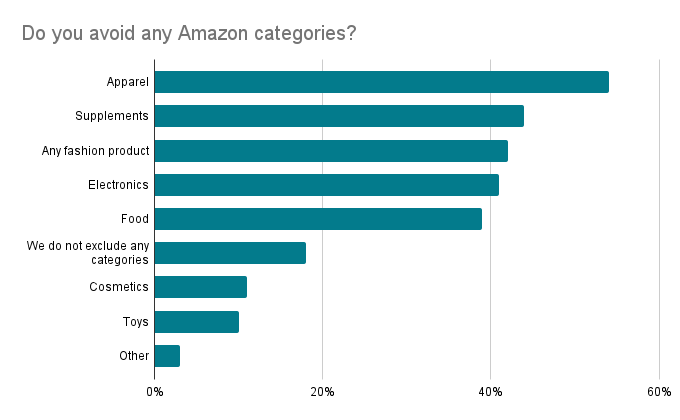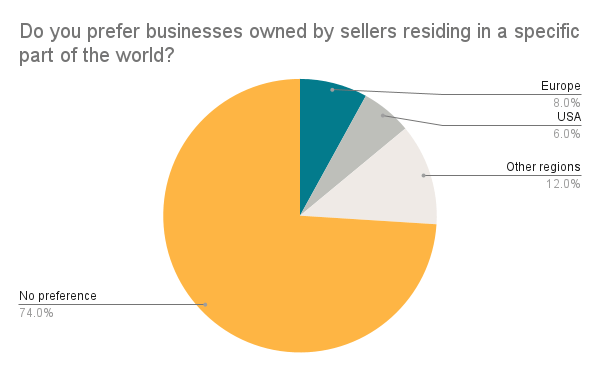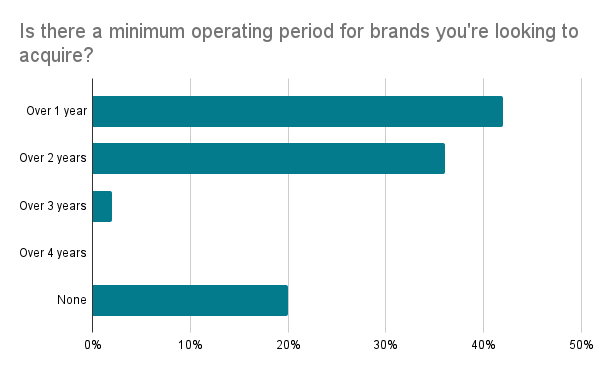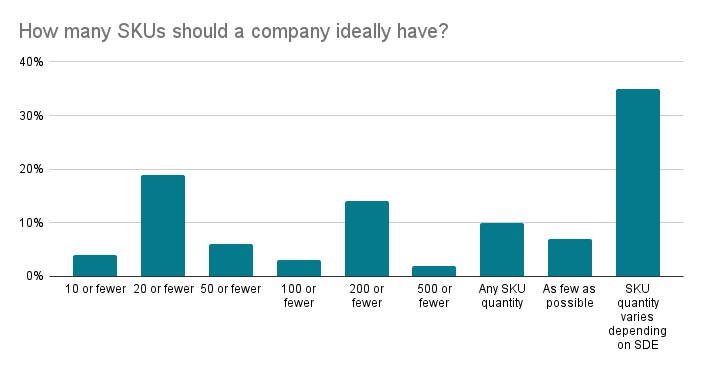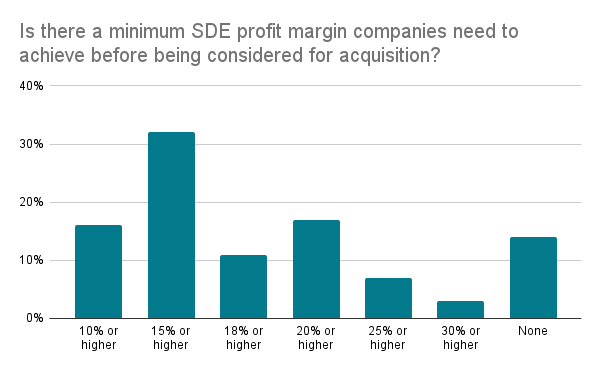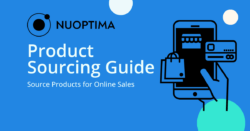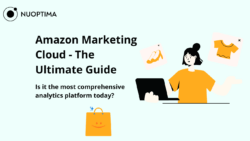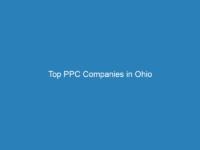Einführung
Mit fast 2 Millionen aktiven Verkäufern auf seiner Website ist Amazon das größte E-Commerce-Unternehmen der Welt. Heute gibt es auf der Plattform eine bunte Mischung aus kleinen Unternehmen, die nur ein paar hundert Dollar pro Monat an Umsatz generieren, bekannten Marken, die Amazon als einen ihrer zahlreichen Vertriebskanäle nutzen, und erfolgreichen Unternehmen, die ursprünglich mit dem Ziel gegründet wurden, Produkte hauptsächlich auf Amazon zu verkaufen. Viele unabhängige Amazon-Verkäufer, die es geschafft haben, ein erfolgreiches Geschäft auf der Plattform aufzubauen, wollen nun Kasse machen und ihr Geschäft an einen der zahlreichen Amazon-Aggregatoren verkaufen, die in den letzten Jahren auf dem Markt aufgetaucht sind.
Obwohl das Interesse von Unternehmenseigentümern, die ihren Betrieb an einen Aggregator verkaufen wollen, sehr groß ist, gibt es nur sehr wenige öffentlich zugängliche Informationen darüber, welche Unternehmen Aggregatoren für eine Übernahme in Betracht ziehen und wie die allgemeine Struktur und die Bedingungen von Geschäften aussehen, auf die sich die Parteien normalerweise einigen. Gleichzeitig gibt es viele weit verbreitete Vorstellungen, die von den Verkäufern für wahr gehalten werden, ohne dass ausreichende Beweise dafür vorliegen.
Vor diesem Hintergrund hat Nuoptima mit über 20 Amazon-Aggregatoren gesprochen und Informationen über die Präferenzen der Aggregatoren, Bewertungen, Gewinnmargen, Geschäftsstrukturen und zahlreiche andere Faktoren gesammelt. Wir werden die gesammelten Daten vorstellen und die Schlussfolgerungen, die daraus gezogen werden können, in einer Reihe von Artikeln zu diesem Thema diskutieren. In unserem ersten Artikel werden wir verschiedene Faktoren erörtern, auf die Aggregatoren bei der Auswahl von Übernahmezielen achten.
Von Aggregatoren bevorzugte und ausgeschlossene Amazon-Kategorien
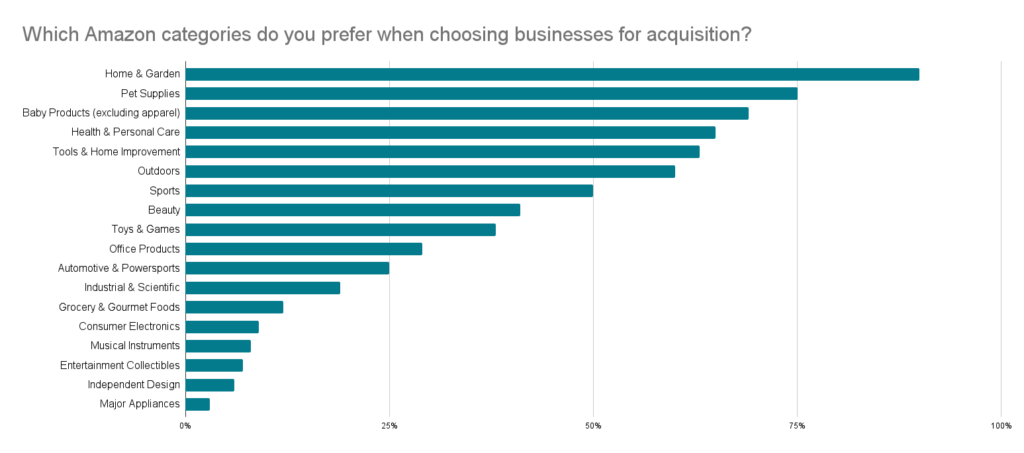
Unserer Studie zufolge wollen die meisten Aggregatoren Unternehmen in den Kategorien Haus und Garten, Haustierbedarf, Babyartikel, Gesundheit und Körperpflege, Werkzeuge und Heimwerkerbedarf, Outdoor, Sport, Schönheit sowie Spielzeug und Spiele erwerben. Dies ist nicht überraschend, da diese Kategorien zu den beliebtesten auf der Plattform gehören. Die meisten Produkte, die in diesen Kategorien verkauft werden, sind Evergreens und müssen nicht häufig umgestaltet werden, um sich an wechselnde Verbrauchertrends anzupassen. Außerdem haben diese Waren keine kurzen Verfallsdaten oder komplizierten Lagerungsanforderungen und sie unterliegen keinen strengen Qualitätsstandards, die von Amazon oder staatlichen Behörden auferlegt werden.
Es ist erwähnenswert, dass Amazon-Aggregatoren am Kauf von Marken interessiert sind, die Produkte mit hoher Nachfrage herstellen, die potenziell profitabel bleiben und über viele Jahre hinweg Umsatz bringen. Das bedeutet, dass Verkäufer, die Produkte in Kategorien anbieten, die seit dem Beginn der COVID-19-Pandemie einen Popularitätsschub erfahren haben, besonders gut positioniert sind, um günstige Übernahmebedingungen auszuhandeln.
Gleichzeitig gibt es mehrere Produktkategorien, die die Aggregatoren zumindest vorläufig meiden. Laut unserer Studie haben viele Unternehmen erklärt, dass sie den Kauf von Marken, die Bekleidung, Nahrungsergänzungsmittel, Modeartikel, Elektronik, Lebensmittel, Spielzeug und Kosmetika verkaufen, nicht in Betracht ziehen. Diese Produktgruppen erfordern ständige Innovationen und Änderungen an den Artikeln, müssen strenge behördliche Richtlinien einhalten oder haben eine kurze Haltbarkeitsdauer. Die britische Gesundheitsbehörde MHRA könnte ein Nahrungsergänzungsmittel im Vereinigten Königreich verbieten, das in Deutschland völlig in Ordnung ist, was es für einen Aggregator schwieriger macht, mit demselben Produkt weltweit zu expandieren. Die Elektronik hat den Nachteil, dass Steckdosen und Stecker in bestimmten Ländern unterschiedlich sind. Darüber hinaus werden die Kategorien Bekleidung und Kosmetika hauptsächlich von bekannten nationalen oder sogar weltweiten Marken beherrscht, was es für die Verkäufer schwieriger macht, Kunden für ihre Angebote zu gewinnen.
Interessanterweise gaben fast 20% der Befragten an, dass sie keine Kategorie von der Betrachtung ausschließen, was darauf hindeutet, dass viele andere Faktoren die Entscheidung zum Erwerb eines Unternehmens beeinflussen.
Arten von Unternehmen, die normalerweise von Aggregatoren erworben werden
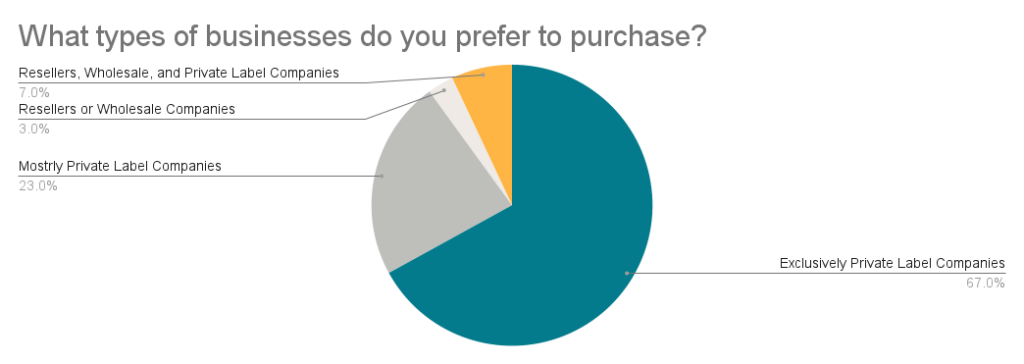
Die Mehrheit der Befragten gab an, dass sie nur den Erwerb von Handelsmarkenunternehmen in Betracht ziehen. Andererseits gaben nur 3% der Befragten an, dass sie für den Kauf von Wiederverkäufern oder Großhandelsunternehmen offen sind. Weitere 7% der Befragten gaben an, dass sie den Kauf aller drei Arten von Unternehmen in Betracht ziehen würden.
Für diesen Trend gibt es einen wichtigen Grund, denn Eigenmarkenunternehmen haben gegenüber Wiederverkäufern und Großhändlern viele geschäftliche Vorteile. Im Gegensatz zu Großhändlern und Wiederverkäufern haben Handelsmarkenunternehmen ihre eigenen, einzigartigen Produkte. Und da sie exklusive Produkte verkaufen, können diese Unternehmen eine einklagbare Marke beantragen, sich Amazons MarkenregistrierungsprogrammSie erstellen ihre eigenen Produktlisten, sammeln Bewertungen und generieren andere wertvolle Informationen.
Gleichzeitig sind Wiederverkäufer und Großhändler völlig abhängig von den Lieferanten ihrer Produkte, die jederzeit ihre Bestände einstellen können. Außerdem sehen sich nicht zugelassene Wiederverkäufer und Großhandelsunternehmen oft mit IP-Beschwerden von Marken konfrontiert, was zu erheblichen Rechtskosten führen kann. Andererseits sind Aggregatoren möglicherweise bereit, den Kauf von exklusiven Wiederverkäufern mit soliden langfristigen Verträgen mit den Markeninhabern in Betracht zu ziehen.
Geografische Kriterien, die die Entscheidungsfindung bei der Übernahme von Amazon-Marken beeinflussen
Viele Amazon-Verkäufer, Berater und Branchenexperten glauben, dass Aggregatoren nur Unternehmen mit Sitz in den USA kaufen. Unsere Gespräche widerlegen diese Annahme jedoch und zeigen, dass über 70% der Aggregatoren keine Präferenz für den Standort des Unternehmens haben, das sie zu kaufen beabsichtigen. Für dieses Phänomen gibt es eine einfache Erklärung, da die meisten Käufer nicht das Unternehmen selbst kaufen. Stattdessen erwerben sie die Vermögenswerte des Unternehmens, zu denen häufig Amazon-Konten, Produktlisten, Patente, Warenzeichen, Marken, Lagerbestände, Verträge mit Lieferanten, Logistikunternehmen usw. gehören.
Gleichzeitig geben die meisten Käufer, die eine Präferenz für den geografischen Standort des Unternehmens des Verkäufers haben, an, dass dies auf ihre geografische Nähe zum Verkäufer zurückzuführen ist. Ein Standort in derselben Region oder im selben Land wie der Verkäufer vereinfacht die Verhandlungen und ermöglicht es den Aggregatoren, sich direkt an die Unternehmenseigentümer zu wenden, ohne Dritte einzuschalten.
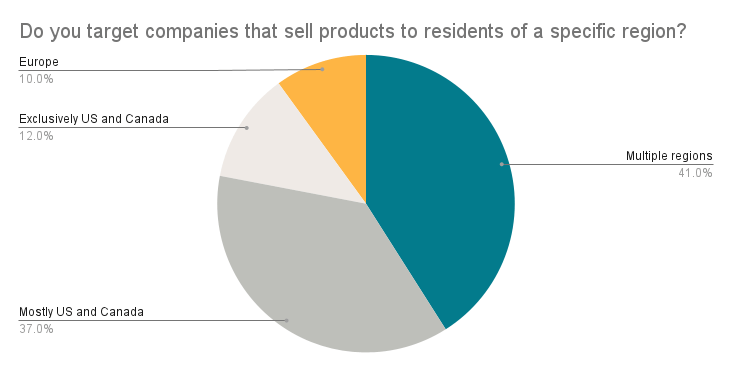
Nach den Ergebnissen unserer Studie bevorzugen die meisten Unternehmen, die Amazon-Marken erwerben möchten, den Kauf von Unternehmen, die in mehreren Regionen der Welt oder in den USA und Kanada tätig sind. Nur 12% der Befragten gaben an, dass sie nur Unternehmen mit Sitz in den USA oder Kanada in Betracht ziehen, und 10% der Teilnehmer gaben an, dass sie es vorziehen, Unternehmen zu erwerben, die nur europäische Kunden bedienen.
Diese Ergebnisse mögen einige Verkäufer überraschen, die glauben, dass sie durch den Betrieb eines Unternehmens in nur einer Region bei potenziellen Käufern im Nachteil sind. Viele Aggregatoren sehen dies jedoch als Chance, das Geschäft schnell auf neue Märkte auszuweiten und den Erfolg der Marke auf dem ursprünglichen Markt zu nutzen, um Kunden zu gewinnen und die Konkurrenz zu schlagen. Hinzu kommt, dass viele Käufer es vorziehen, Marken zu kaufen, die in den USA und Kanada tätig sind, weil der E-Commerce-Sektor in diesen Ländern so groß und stark ist.
Andere Faktoren, die bei der Bewertung von Übernahmezielen berücksichtigt werden
Während einige Amazon-Verkäufer davon ausgehen, dass Aggregatoren eine lange historische Betriebsdauer als Vorteil ansehen, ist dies weit von der Wahrheit entfernt. Unseren Gesprächen zufolge bevorzugen über 40% der Käufer Unternehmen, die seit mindestens einem Jahr im Geschäft sind. Etwas mehr als 35% der Käufer wählen Unternehmen aus, die seit mindestens 2 Jahren tätig sind, und 20% der Aggregatoren haben keine feste Mindestbetriebsdauer.
Diese Daten lassen sich leicht durch die Tatsache erklären, dass Aggregatoren Unternehmen erwerben wollen, die relativ schnell wachsen können. Und wenn ein Unternehmen bereits seit mehreren Jahren im Geschäft ist, könnte es seine Wachstumsphase bereits hinter sich haben. Gleichzeitig kann selbst eine kurze Mindestbetriebsdauer den Käufern helfen, sicherzustellen, dass sie nur Unternehmen in Betracht ziehen, die über genügend Vermögenswerte verfügen, um ihre Übernahme lohnenswert zu machen. Zu diesen Vermögenswerten gehören in der Regel Produkte, Inserate, Bewertungen, Marken usw.
Die Daten im obigen Diagramm zeigen, dass die Präferenzen der verschiedenen Aggregatoren hinsichtlich der Anzahl der SKUs eines Amazon-Verkäufers sehr unterschiedlich sind. Dies könnte von den Ressourcen des Käufers, der Anzahl der Mitarbeiter, die für die Verwaltung des neu erworbenen Geschäfts eingesetzt werden können, der Erfahrung des Aggregators in der Branche usw. abhängen. Ein großer Teil aller Befragten gab jedoch an, dass die Anzahl der SKUs an sich nicht wichtig ist. Vielmehr kommt es auf das Verhältnis von SDE pro SKU an.
Nach den Ergebnissen unserer konversationsbasierten Studie sind über 30% der Amazon-Aggregatoren bereit, die Übernahme eines Unternehmens in Betracht zu ziehen, das eine SDE-Gewinnspanne von mindestens 15% aufweist. Diese Zahl ist zwar relativ niedrig, könnte aber dadurch gerechtfertigt sein, dass die Käufer erwarten, dass sie in der Lage sein werden, das Geschäft zu optimieren und die Gewinnspanne zu erhöhen. Außerdem ist zu beachten, dass Unternehmen mit niedrigeren Gewinnspannen in der Regel billiger zu erwerben sind, was sie für Käufer attraktiver macht.
Schlussfolgerungen
Heute sind die meisten Amazon-Aggregatoren aktiv auf der Suche nach Unternehmen, die sie übernehmen und in ihr Netz aufnehmen können. Unternehmen, die beliebte Evergreen-Produkte ohne regulatorische Beschränkungen verkaufen, sind in der Regel die beliebteste Wahl. Darüber hinaus suchen die meisten Aggregatoren nach Unternehmen, die Produkte in den USA und Kanada oder in mehreren diversifizierten Regionen verkaufen. Dabei spielt der Standort des Unternehmens keine große Rolle, da die Käufer in der Regel die Vermögenswerte des Unternehmens und nicht die juristische Person selbst erwerben. Private Label-Unternehmen werden von den Käufern bevorzugt, da sie das größte Potenzial für langfristige Stabilität und Erfolg haben. Insgesamt sind die Aggregatoren sehr daran interessiert, Unternehmen zu erwerben, die sie optimieren und exponentiell ausbauen können.
